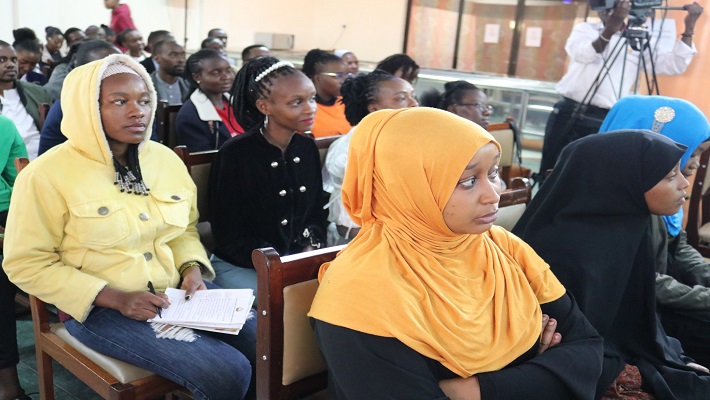By Paschal Norbert
NAIROBI, March 31, 2023 (CISA) – A study conducted by the Loyola Centre for Media and Communications (LCMC), a Jesuit apostolate of the Eastern African province has revealed that young people are struggling to find the meaning of their lives and “there is a growing inter-generational cut-throat finger pointing between the adults and young people on who is responsible for the falling away of young people from places of worship as well as for the increasing cases of mental health.”
“More and more young people are struggling to find the meaning of their lives. Consequently, the number of teenagers seeking and accessing drugs, and engaging in uncontrolled drinking and sexual activities is alarmingly on the rise. Spiritual depth, which should be one of the key pillars in manifesting life as a gift from God, is largely lacking in young people’s lives,” said Dr Elias Mokua SJ, the Executive Director of LCMC and the principal researcher of the Indicative Survey Report on Powering Young People’s Resilience and Dignity in a Digital Age.
The objectives of the study conducted from the year 2020 to March 2023 focused on assessing the extent to which spirituality is inculcated in families, learning institutions and in the everyday life of young people and the extent to which they are aware of mental wellness in their environment. It also analyzed ways in which parents, religious leaders, teachers and the government communicate and build social resilience among young people.
The findings revealed that there is less human connectivity and support to children in learning institutions, particularly, high schools while further indicating that “learning institutions have lost their role as “parenting institutions by extension.”
Speaking at the Powering Young People’s Resilience and Dignity in a Digital Age National Conference, held at the Hekima Institute of Peace Studies and International Relations (HIPSIR) from March 30 to 31, 2023, Archbishop Anthony Muheria opined that “given the changing socio-economic factors, there is a need for investments in innovative mechanisms to strengthen teenagers and youth-friendly approaches to value-based teaching and learning between parents/guardians, teachers and pastoral agents,” as a policy recommendation on the indicative survey report.
While the report indicated a growing disconnect between parents and young people, Bishop Alfred Rotich in his presentation titled “Rescue Mission for The Youth,” challenged parents “to be prayerful in order to discern rightly.”
“The Role of the parents is to assure and ensure the protection of their children as young ones today feel neglected by their parents,” he said.
According to the study, 61.6 % of the respondents aged between 18 and 25 consider parents responsible for their dropping out of Church followed by religious leaders at 49.5% and teachers at 43.9%.
Dr Elias explained the “growing inter-generational cut-throat finger pointing between the adults and young people on who is responsible for the falling away of young people from places of worship,” is because “Young people find adults too judgmental while adults find young people dishonest, lazy and demanding too much freedom rendering them (parents) without power to discipline.”
The two-day conference brought together various religious leaders among them Archbishop Anthony Muheria of Nyeri, Bishop Alfred Rotich of Kericho, Pastor Alfred Marundu, Executive Secretary Seventh Day Adventist and Fr Joseph Mutie, Chairperson of the Inter-Religious Council of Kenya (IRCK).
Other panellists included Beatrice Elachi, Member of Parliament Dagoretti North, Sylvia Kasanga, a former member of the Kenyan Senate and Sharon Mbugua, a mental health awareness advocate.
